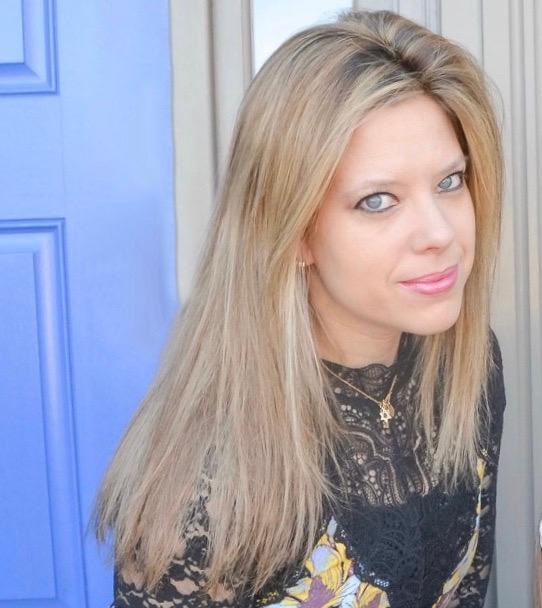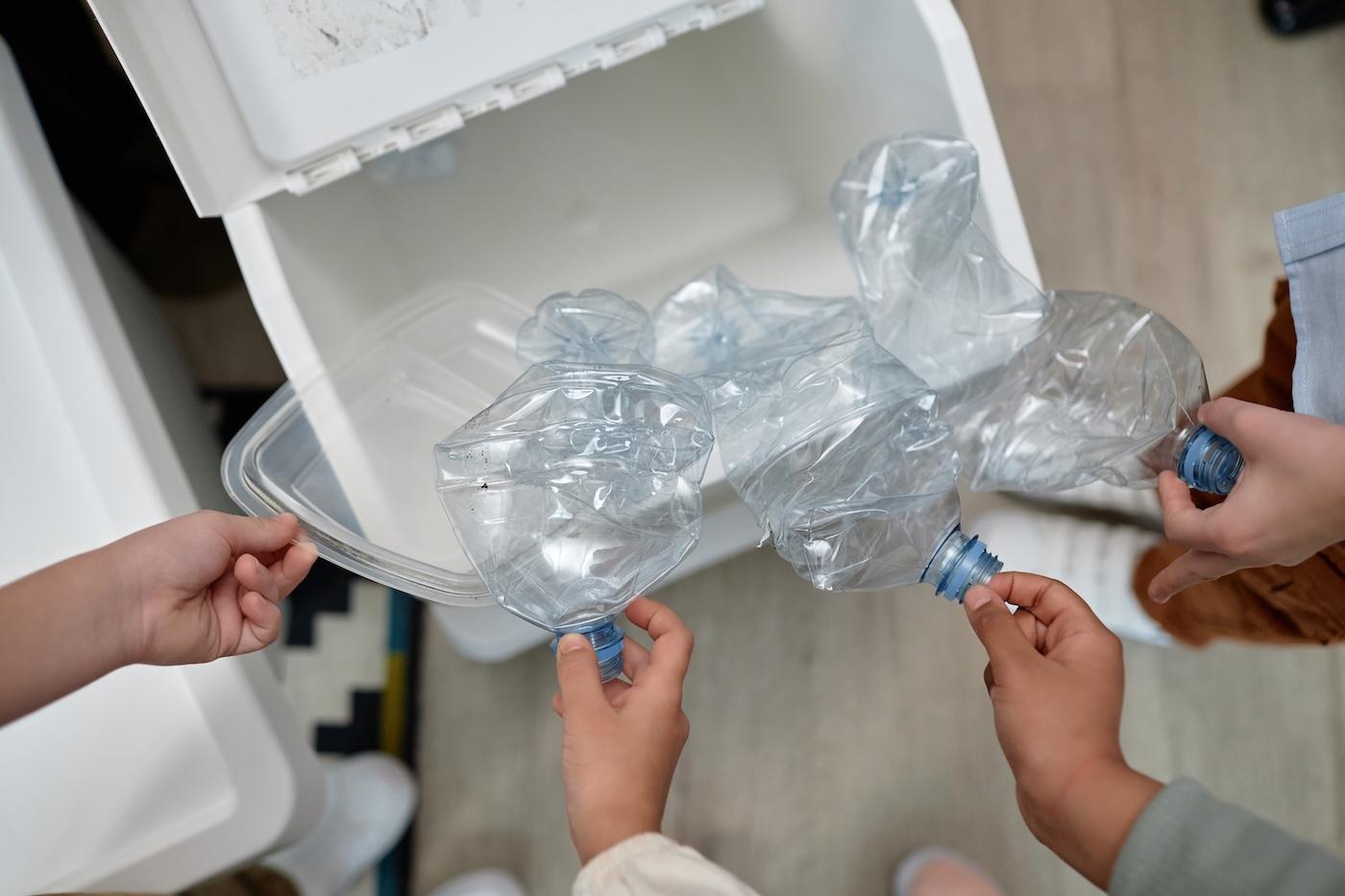PARENTS
What’s Your Parenting Style Based on Your Enneagram Type?
Learn what your Enneagram number is discover what it says about your parenting style.

Written by
Jenny Studenroth Gerson

In a world full of people searching for meaning and connection, many are comforted by the existence of horoscopes and personality quizzes. Then there are professionals who compile information about humans to determine and explain the code of our behavior. If you’ve never heard of the Enneagram, this is a set of nine basic personality types assigned to humans based on their responses to myriad questions about philosophy, lifestyle, and reactions to a wide range of scenarios and prompts.
Find Your Enneagram Type
You can take the test here to learn what number you are assigned and in so doing, delve deeper into the type of thinker and feeler you are. This quintessential personality test, unlike a zodiac sign, is not assigned based on when you were born. Rather, your type is determined by your honest answers to the questions and only determined by your thoughts, feelings, and patterns.
Learning about your Enneagram type can not only help you at work or in social and romantic relationships, but there’s also a whole world of Enneagram-related parenting styles to discover. Each of the nine personality types are attributed to a set of behaviors and motivations that translate into every facet of your life. Some of these traits will serve you beautifully as a parent and become your greatest strengths in raising children. Others can be a detriment to the type of relationship you want with your children, so it’s best to learn about your Enneagram parenting style to avoid likely missteps and play up your strengths.
Learn what your Enneagram number is, and read on to discover what it says about your parenting style.
Type 1: The Reformer
The rational, idealistic type. Principled, purposeful, self-controlled, and perfectionistic.
Parenting Type: The Perfectionist
Okay, Type Ones, here’s what you need to know: Your level-headedness paired with a strong sense of order and detail are going to serve you well as a parent. But sometimes that need for perfection will overwhelm the kiddos.
Your strengths as a Type One mom or dad are many. You keep a clean and orderly home, teach your children healthy boundaries, and instill in them a sense of dignity and right-from-wrong. Your children will not grow up in chaos or mess and will expect others to be honest with them and do the right thing. You might be strict, but you’re fair, and you don’t tend to yell or fly off the handle. Bravo!
Places where your perfectionist nature could impede things at home are when you forget that kids will be kids. As a parent, remember too that sometimes fun is more important than cleaning up. That boundaries are important but spontaneity keeps life fresh and interesting. Try also taking your kids’ lead a bit with a “yes” day every once in a while, or just letting them tidy and organize their own rooms in a way that feels right to them. Order is important, but it’s not a bad thing to let your family find their own sense of order, too.
Type 2: The Helper
The caring, interpersonal type. Demonstrative, generous, people-pleasing, and possessive.
Parenting Type: The Helicopter
We want to start by letting you know that there is nothing wrong with being sweet, loving, and generous. These are wonderful traits in any person, let alone someone raising other people! But some tendencies of Type Twos can get in the way of a positive relationship with your littles.
Others want to be around you because you take care of them, and they can tell that you genuinely do care. As a parent this means your children will never want for anything and will feel supported and adored by you from day one. You always make sure to give extra doses of love and treats and forget nothing when it comes to their emotional and physical needs.
The problem with your helper status is that it can turn you into a bit of a “smother mother.” Your generosity and desire to help them do every little thing can feel a bit suffocating, especially as they enter adolescence. Even before then, give your children the autonomy to make their own choices and mistakes more. Step back a bit and trust them to find their own way… even though they know you’ll be very close by whenever they need you.
Type 3: The Achiever
The success-oriented, pragmatic type. Adaptive, excelling, driven, and image-conscious.
Parenting Type: The Tiger Parent
Hey over-achiever, no one is knocking your drive or desire for successful kids. One day when they reach their goals, they’ll count you among the top motivators for that success. But don’t forget to step back and let them steer their own ships a bit, to avoid resentment later on.
As an Achiever, you’ve got a lot going for you in the parenting department. You are your children’s loudest and proudest fan, and you shower them in praise for every milestone they reach. You work hard and encourage your children to do the same, teaching them that they can achieve any goal they dream of with dedication. You also do a great job of keeping them organized, while teaching them personal responsibility. You’re doing their teachers, coaches, and friends all a favor with these values.
Just make sure though, that in all your encouragement of your child you don’t forget to step back and look at the other important stuff too, like how they treat people and what they enjoy doing in their downtime. A lot of Type Three parents fueled by the “tiger parent” mentality actually have some degree of personal failure they seek to overcome by pushing their own goals onto their children. Do not live vicariously through your kids or push them into activities that interest you when their hearts are not in it. And try to carve out some time in their rigorous schedules (and yours!) for relaxing as a family.
Type 4: The Individualist
The sensitive, withdrawn type. Expressive, dramatic, self-absorbed, and temperamental.
Parenting Type: The Moody Creative
Type Fours are good at bringing out the creative and artistic side in others, especially their own children. Your brood has much to gain from your whimsy and big personality, but there are certain aspects you’ll want to work on to be the best parent you can be.
Individualists do great things at home and in the world. You’ve surely designed a home for your family that’s cozy, beautiful, and filled with personal touches. Their lives will be rich in art, music, and fun. And no one can laugh louder at a kid’s jokes or play “tea party” longer than a Four. You’re good at expressing your emotions and your children will always feel safe being vulnerable and honest with you about their own. This is a wonderful trait in any parent.
Despite your theatrical side, though, you tend to withdraw which can be hard on kids. Especially if they’re shy on their own, you’ll want to try and push yourself to get out and about more and meet other families, building a sense of community for them. Your flair for the dramatic can also swing toward depression and sadness, so stay on top of your own wellness and needs to avoid burdening the kids with large adult feelings that you don’t want them to internalize or feel responsible to manage.
Type 5: The Investigator
The intense, cerebral type. Perceptive, innovative, secretive, and isolated.
Parenting Type: The (Over?) Thinker
Your problem-solving brain is such a gift, and it will mean that your kids grow up with a strong sense of confidence and curiosity. There’s also a side to Fives that doesn’t lend as naturally to handling the moods and limits of children, so you’ll want to keep that side in check.
Investigators as parents utilize and instill a deep sense of wonder and thirst for knowledge in their children. As your little ones grow and fill to the brim with questions, you’ll thrive as the parent who looks everything up, dives deep to discover their answers, and makes learning fun. You will also research every stage of their development to death, making you a walking expert on all things parenting and children, in turn rendering you the best mom or dad friend another parent could turn to with all their questions.
Make sure to take your thinking cap off sometimes and just enjoy, though. The baby and toddler years, while they’re so exploratory and curious, are going to be your absolute jam. As your kids grow, you might butt heads with them over how much time they want to be out socializing vs. your preference for hanging at home. Balance and patience are all you need to work through these stop-gaps.
Type 6: The Loyalist
The committed, security-oriented type. Engaging, responsible, anxious, and suspicious.
Parenting Type: The Mama or Dada Bear
Your desire to keep everyone you love close and safe is something you pride yourself on, and we don’t blame you one bit. Your role as a nurturer and protector will serve you well in parenthood, especially with some effort to limit your suspicions about the outside world.
Loyalists are natural nurturers and many of the most important parts of parenting will come to you naturally. You care for your young with passion and practicality; you remain a safe place for them to fall; and you ensure their needs are always met. You’re dependable and work hard to provide for your family. As a Six, you go easy on the rules outside of safety-oriented ones. Your kids are strapped properly into the right car seats, and as long as they’re being kind and safe, you’re happy to let them have fun and just be themselves.
But sometimes your fixation on the dangers of the world can be overwhelming, and never before has this hindered your ability to relax and have fun more than when you become a parent. Remember that being aware of dangers is important, but living in constant fear is detrimental. And despite your deep love and affection for the kids, make sure to set up reasonable boundaries to remind them that you deserve respect and care as well.
Type 7: The Enthusiast
The busy, fun-loving type. Spontaneous, versatile, distractible, and scattered.
Parenting Type: The Fun Parent
We’re going to come right out with it: In any two-parent home, you’re bound to be the kids’ favorite most of the time. Your sense of fun and adventure is infectious, and there’s no one more prone to enjoy the best of childhood right alongside their little ones.
As an Enthusiast, life's one big adventure. You keep the family loaded up with exciting plans, with a constant pace that fills their days with action and joy. As a social busy bee, you love playdates, meals out, and getting together with the kids’ cousins, neighbors, and besties for everything from park days to vacations. You’re a bit of a big kid yourself and enjoy reading stories and playing pretend with them; they’ll never forget that and will appreciate it forever.
As a Seven, one thing you’ll want to be wary of is pushing your kids to do too much. A good chunk of the population falls under the category of introverted, homebody, or both. If that applies to any of your kids, they likely won’t keep up well with your constant pace of activities. Find a balance with “slow” time at home to get quieter projects and mundane day-to-day tasks accomplished so that the family can best thrive.
Type 8: The Challenger
The powerful, dominating type. Self-confident, decisive, willful, and confrontational.
Parenting Type: The Boss
Listen, every family needs an Eight. The simple fact is that a home full of children functions best when someone organized and confident takes up the reins and makes the rules.
Challengers are effective in making a home run smoothly. You’ve got a huge heart and you show it in your strong belief in their abilities to achieve their goals and live bountifully. You are super-protective of them and will stand up to any bully, unfair system, or other injustice they face, helping them by giving them the tools to solve their own problems while knowing you always have their backs. You will do anything to help your kids succeed and be happy.
But that doesn’t mean you don’t have traits to keep in check. Eights can rise dramatically to anger even in situations that don’t necessarily call for it and can have a hard time relating to particularly sensitive kids. Step away from the room to regroup for a moment before deciding on disciplinary measures and seek guidance from your partner and/or other parents on what reasonable punishments entail at each stage. Most importantly: Listen to your children and let them be who they are. They’ll love and respect you even more for that, than your ability to run the show.
Type 9: The Peacemaker
The easygoing, self-effacing type. Receptive, reassuring, agreeable, and complacent.
Parenting Type: The Hippie
You are the epitome of laidback, and your children will enjoy life in your home where they are respected and allowed to be themselves. People generally love having you around, because you’re a good listener, kind, and go with the flow.
A laissez-faire approach to parenting is not a bad thing. It means there will be ample space in your home for the kids to be themselves, to laugh, create, and just enjoy their young years. It means you won’t overload them with needless rules or bog them down with so many chores that life feels heavy. You run on spontaneity, pure joy, and good old-fashioned fun, and your children will trust you with their secrets and find you take it easy on them when they mess up.
Just be careful, because Nines are notorious for putting themselves so far on the backburner that they risk martyring themselves in the name of everyone else’s joy. Don’t forget to take time out to do what you want and don’t let your gentle parenting approach be so extreme that the kids take advantage of you. You also want to instill in them that out in the world they are responsible for their actions, and that they need to respect others and their environments.
Don’t go so lax on the rules that they miss these important life lessons, and just allow your solid sense of right and wrong to guide your decision-making at home.
More Fun Reads:
- What's Your Baby's Birthstone?
- Fascinating Facts Based on Your Baby's Birth Month
- Your Baby's Personality Based on their Zodiac Sign
- Nursery Ideas for Every Zodiac Sign
- The Best Baby Names for Every Zodiac Sign
Disclaimer: The information on our site is NOT medical advice for any specific person or condition. It is only meant as general information. If you have any medical questions and concerns about your child or yourself, please contact your health provider.
SHARE THIS ARTICLE
MOST LOVED
Sleepytime Sidekicks












